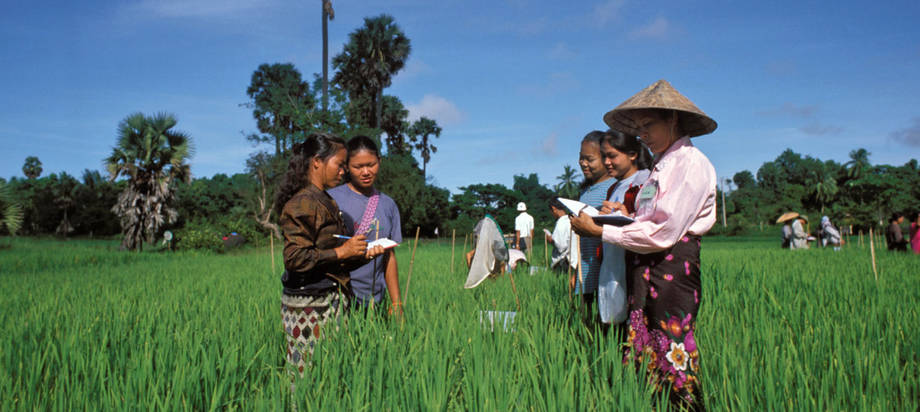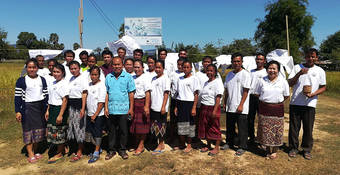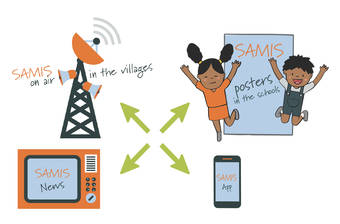Awareness Raising
Component 3 / INFORMATION MANAGEMENT
Activities under Component 3 will communicate information generated from Components 1 and Component 2 to the different stakeholders at national, provincial, and local levels. This provides knowledge management and dissemination of information and lessons learned for planning, monitoring and evaluation.
At local level, the weather, climate, land resources, and climate-change impact information will be disseminated to farmer groups through established farmer field schools (FFS). The project will ensure that women participate in Farmer Field School programs and ensure that their needs are reflected in the new curriculum.
In addition, climate services will improve farmers’ ability to access and use climate information through a variety of methods and training curricula with rural communities. This is complemented by the development of interactive communication channels such as mobile application, loudspeaker, TV and radio programming etc.
The project component 3 is specifically designed to facilitate sharing of good practices, lessons and knowledge management. The national level knowledge sharing initiatives integrated as part of the project will provide necessary policy advocacy for integration of good practices and replication in similar areas by provision of additional government funding. The replication and scaling-up is related to efforts to communicate value added information products and agro-advisories to most vulnerable population in Lao PDR.
The component is implemented by District of Natural Resource and Environment office (DONRE) of the Ministry of Natural Resource and Environment (MONRE) and District of Agriculture and Forestry Office (DAFO) of the Ministry of Agriculture and Forest (MAF)
A leaflet describing the activities of component 3 is available here.
Main Outputs:
- Local application of climate information and location specific adaptation strategies facilitated through Farmer Field Schools (FFS) and through the adoption of a variety of awareness raising and communication methods.
- Knowledge and information sharing workshops conducted and best practices, key lessons disseminated via publications, project websites and others to facilitate wider awareness and utilization in other climate sensitive sectors
- Project M&E system established to monitor activities and outputs systematically at all levels (national, provincial and local) and outcomes evaluated.




